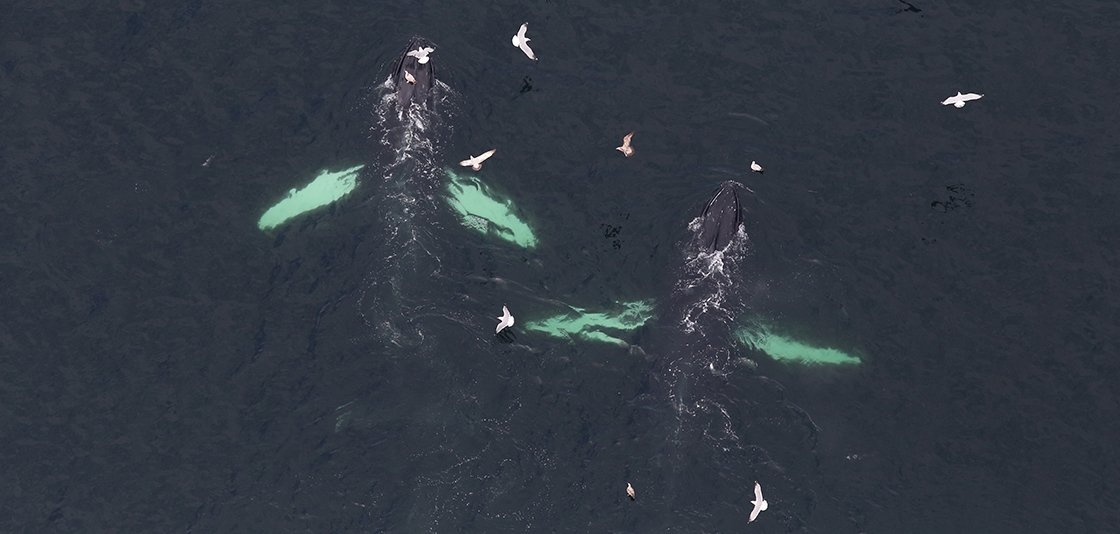On November 30, the National Marine Fisheries Service (NOAA) authorized five companies to conduct seismic blasting off a large area of the Atlantic Coast to search for oil and gas reserves. These surveys are a precursor to offshore drilling. Following the announcement, the Chesapeake Bay Foundation (CBF) issued a response.

NOAA Fisheries issued final authorizations under the Marine Mammal Protection Act to incidentally, but not intentionally, harass marine mammals to companies proposing to conduct geophysical surveys in support of hydrocarbon exploration in the Atlantic Ocean.
The authorizations require monitoring, reporting, and mitigation measures to reduce the impacts of survey activities on marine mammals, including:
-
Observers on board geophysical survey vessels to listen and watch for marine life and alert operators if a protected species comes within a certain distance.
-
Operational restrictions designed to eliminate or reduce impacts to sensitive species in their preferred habitats.
-
Acoustic monitoring to detect marine mammal vocalizations beneath the ocean surface.
-
Gradual increases of seismic activity to alert animals in the area and reduce potential for exposure to intense noise.
-
Required shutdowns when certain sensitive species or groups are observed.
-
Vessel strike avoidance procedures.
NOAA Fisheries reviewed five separate applications from companies involved in geophysical surveys using airgun arrays in the Atlantic Ocean, as well as public feedback on both the applications and proposed authorizations. The review and feedback informed the development of the most appropriate suite of monitoring and mitigation requirements for MMPA authorizations.
The Bureau of Ocean Energy Management has responsibility for permitting geophysical surveys, and makes decisions about energy development in the waters of the outer continental shelf. Efforts to explore for hydrocarbons using this technique were renewed in 2017 with Presidential Executive Order 13795, "Implementing an America First Offshore Energy Strategy," which encourages energy exploration and production that fosters energy security and resilience for Americans, while ensuring those activities are safe and environmentally responsible.
Statement From the Chesapeake Bay Foundation
Chesapeake Bay Foundation Vice President for Environmental Protection and Restoration Lisa Feldt issued the following statement.
"Allowing seismic blasting off the coasts of Maryland and Virginia is an unacceptable step towards drilling for oil and gas. Offshore drilling in our region would pose far too many risks to the health of coastal waters and the Chesapeake Bay, fishing, aquaculture, tourism, and all jobs that depend on clean water.
The governors of both Maryland and Virginia strongly oppose offshore drilling, and communities across the region have passed resolutions against it. We need to run away from offshore drilling, not move towards it.”